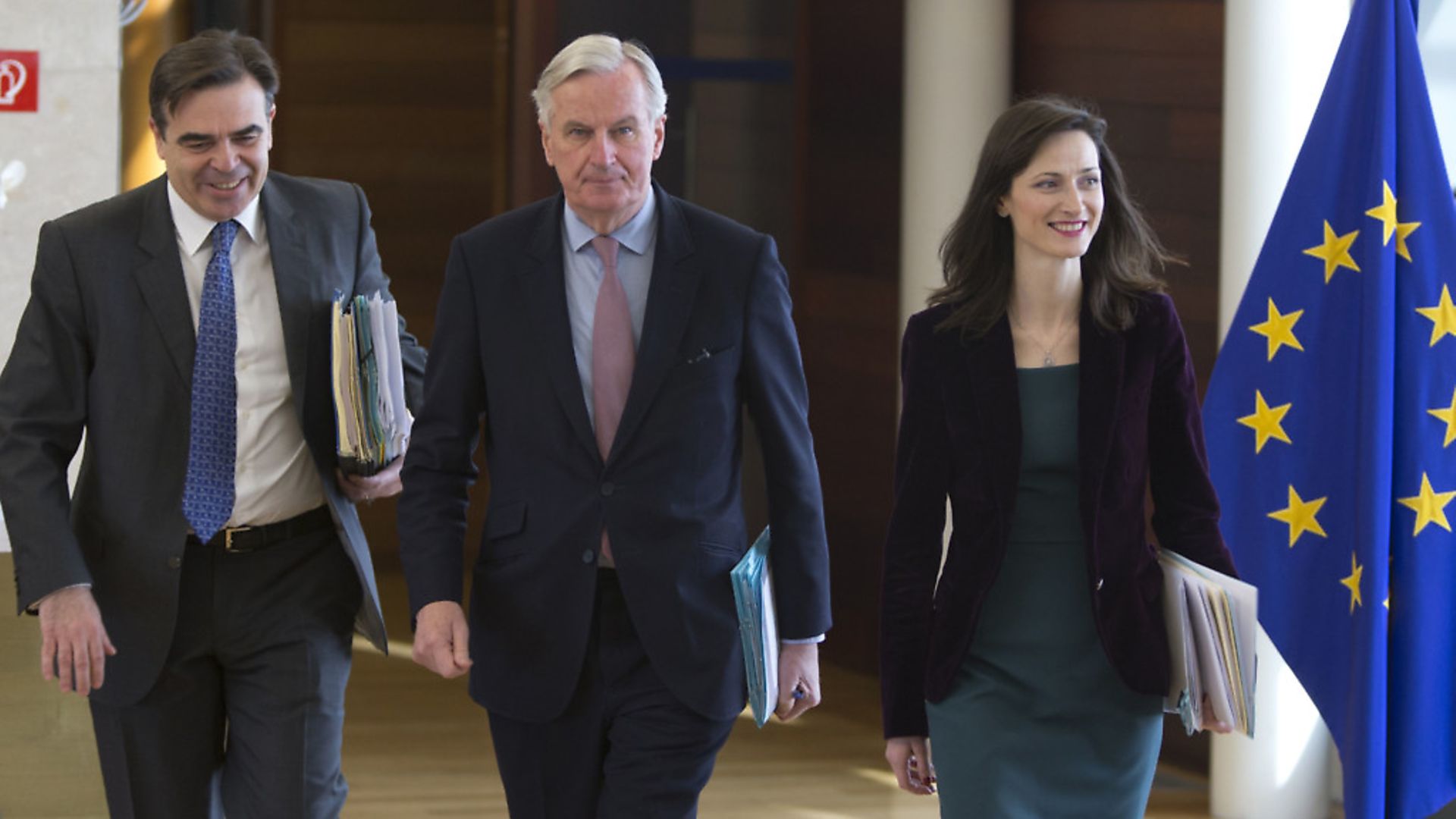
France, Spain and Belgium are ready to veto a Brexit extension.
Theresa May has written to European Council President Donald Tusk requesting exit day on March 29 be postponed until June 30.
EU chief negotiator Michel Barnier has warned an extension will not be granted without a ‘concrete plan’ from May for ‘something new’.
Now, sources have told the Press Association that France, Spain, Belgium and maybe Italy stand prepared to reject an extension without evidence parliament is now ready to accept a deal and ‘the deadlock can be broken’.
Some member states worry there is no point to an extension as, even after 1,000 days of negotiation, May’s deal keeps being rejected and the EU cannot move any further towards the UK.
One source said: ‘We’re not against an extension per se but we need to have two things – first a demonstration that the situation has changed and there is a guarantee the extension is for something and second that an extension won’t be detrimental to the EU.
‘Yes, a no-deal Brexit would be damaging and it’s absolutely not what we want but I think we’re ready to go to this situation because there are only two solutions – either a deal is accepted or there is no deal.
‘The deal has been rejected and it keeps being rejected so if we come to no-deal then so be it.’
It is understood French president Emmanuel Macron believes Brexit is holding up his plans for radical reform of the EU and needs to be brought to a conclusion.
French foreign minister Jean-Yves Le Drian has set three criteria that Britain must meet if May is to be granted a Brexit extension.
Speaking at the National Assembly ahead of the meeting of EU leaders in Brussels where May’s request for an extension will be discussed, Le Drian warned the UK will likely crash out of the bloc without a deal if the conditions are not met.
He said May must convince leaders the purpose of the delay is ‘to finalise the ratification of the deal already negotiated’, and not an attempt to renegotiate the deal agreed last November.
Le Drian added the short delay request must also be conditional on the UK not participating in the European parliamentary elections from May 23-26.
A cautious reaction to reports Macron and other leaders could oppose an extension was given by Agathe Demarais, principal economist at the Economist Intelligence Unit.
Demerais said such reports ramped up the pressure on the UK to present a Brexit road map on how to break the current political deadlock in the Commons, in line with the European Commission’s desire to end any extension on May 23 before the EU elections or provide a longer extension to allow a strategy switch.
She said: ‘France has always had one of the toughest stances on Brexit negotiations across EU member states.
‘This is because Emmanuel Macron, the French president, wants to deter other EU member states from considering exiting the bloc.
‘France aims at doing so by showing that leaving the EU is a damaging process that will result in an outcome that is necessarily inferior to EU membership.
‘In addition, France has always tried hard to attract international companies that will leave the UK following Brexit.
‘As such, a no-deal Brexit scenario would not be catastrophic for the French government.’
Asked whether he believed that the French president will veto an extension, Irish preime minister Leo Varadkar said: ‘No. It is my understanding, and people will know this from his public comments, that he is sceptical about an extension.
‘A lot of people in the European Union want this resolved. It’s been going on for over two years now. There’s a lot of frustration across the European Union.’
Warning: Illegal string offset 'link_id' in /mnt/storage/stage/www/wp-includes/bookmark.php on line 357
Notice: Trying to get property 'link_id' of non-object in /mnt/storage/stage/www/wp-includes/bookmark.php on line 37






